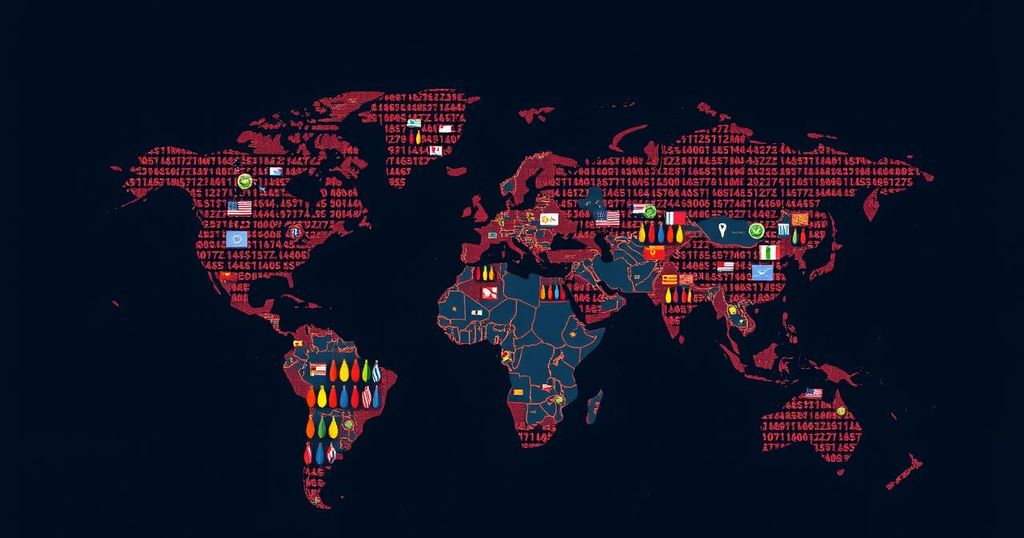Cyclone Freddy’s devastating impact in Malawi highlights the urgent need for compensation for climate change damages. Wealthier nations have pledged around $720 million for ‘loss and damage’ funding to assist poorer countries, but experts warn this is insufficient amid escalating climate crises. The challenge remains to ensure effective utilization of these funds, alongside addressing broader climate finance needs.
In March 2023, Cyclone Freddy caused catastrophic flooding in southern Malawi, prompting aid for the affected populations. As a subsistence farmer, Christopher Bingala was one of many whose livelihoods were devastated; however, he received a pivotal financial assistance of approximately $750 designated for “loss and damage” caused by climate change. This compensation initiative emerged from an agreement reached by wealthier nations to support poorer countries facing the severe impacts of global warming despite their minimal contributions to greenhouse gas emissions.
So far, pledges totaling around $720 million have been made by nations including the United States and the European Union, but experts caution that the allocated funds will not be sufficient given the increase in extreme weather events. As discussions unfold at the COP29 climate summit in Baku, Azerbaijan, the focus remains on determining the compensation owed to developing countries as part of a broader climate finance framework, which includes loans and investments aimed at supporting vulnerable regions.
The effects of Cyclone Freddy were far-reaching – it displaced approximately 650,000 individuals in Malawi, with many left to rely on dwindling supplies of food while temporarily housed in camps. Bingala expressed the desperation felt by him and his family during the crisis, recounting their economically strained existence after losing everything. However, he successfully utilized the compensation to rebuild his home and secure a more stable living environment in a less flood-prone area. Despite ongoing challenges such as getting his children back in school, Bingala remains grateful for the improved safety and quality of life for his family.
Scotland emerged as a pioneer in the allocation of funding directly for loss and damage, with programs implemented through organizations like GiveDirectly, which provided vital grants to alleviate the financial burdens faced by many families. With 2,700 families receiving assistance averaging $750, these funds allowed recipients to make significant investments toward recovery, including rebuilding homes and re-establishing businesses.
As climate-related disasters escalate in both frequency and intensity, the need for comprehensive loss and damage funding is paramount, especially for developing nations grappling with existing economic pressures. For instance, Prime Minister Philip Davis of the Bahamas highlighted how climate catastrophes, such as Hurricane Dorian, exacerbate national debt and impact recovery efforts. Despite the establishment of the new climate funding mechanism, many low-income countries are lobbying for broader applications of the funds beyond immediate disaster relief, arguing for assistance with issues including relocation due to rising sea levels or cultural preservation in the face of environmental degradation.
Estimates reveal that the demand for loss and damage funding could reach $250 billion annually by 2030, underscoring the urgency for developed nations to commit to financial support for affected regions. Davis warned that failure of wealthier nations to act would lead to dire repercussions not only for vulnerable populations but also for global stability, as displaced individuals could escalate humanitarian crises on an international scale.
Fundamentally, rich countries must embrace their responsibility in this endeavor, ensuring effective measures are taken to protect those disproportionately affected by climate change.
The growing impacts of climate change are posing significant challenges for low-income countries that have historically contributed little to global emissions. As natural disasters become increasingly severe, wealthier nations are acknowledging their role and are agreeing to provide financial aid to assist those most affected. The introduction of compensation funds for loss and damage is a pivotal step towards addressing long-standing inequities in climate responsibility and supporting disaster recovery efforts.
The establishment of funding for “loss and damage” compensation marks a critical development in addressing the inequities of climate change impacts faced by poorer nations. While initial financial commitments have been made, experts emphasize the necessity for increased contributions and comprehensive strategies to ensure ongoing support. As climate-related disasters intensify, it is imperative for richer nations to fulfill their responsibilities to vulnerable populations and foster a more sustainable and equitable global approach to climate change.
Original Source: www.waer.org






